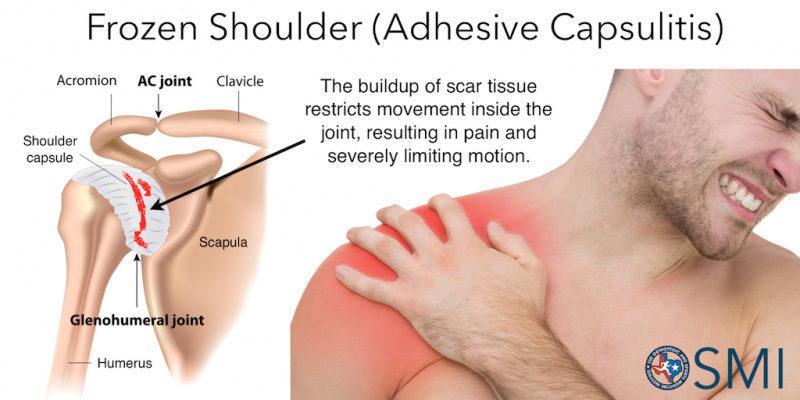Frozen shoulder: Causes & Risk Factors, Symptoms, Stage,Treatment.

A frozen shoulder, also known as adhesive capsulitis, is a condition characterized by stiffness and pain in the shoulder joint. Here are some key points to know about frozen shoulder:
Causes and Risk Factors:
- Injury or trauma to the shoulder
- Overuse or repetitive motion
- Medical conditions like diabetes, thyroid disorders, and heart disease
- Age (most common in people over 40)
- Gender (more common in women)
Symptoms:
- Pain and stiffness in the shoulder and upper arm
- Limited range of motion
- Difficulty lifting arms or performing everyday activities
- Pain worsening at night
Stages:
1. Freezing: Pain and stiffness gradually increase over 2-9 months.
2. Frozen: Shoulder becomes stiff and difficult to move, lasting 4-12 months.
3. Thawing: Range of motion improves, and pain decreases over 5-24 months.
Treatment:
- Physical therapy and exercises to improve range of motion and strength
- Pain management with medication, injections, or surgery (in severe cases)
- Alternative therapies like acupuncture and massage
It's essential to consult a healthcare professional for proper diagnosis and treatment. They will perform a physical examination and may use imaging tests like X-rays or an MRI to rule out other conditions.
Remember to seek medical attention if you experience:
- Sudden or severe shoulder pain
- Difficulty moving your arm or shoulder
- Numbness or tingling in your arm or hand
Early treatment can help alleviate symptoms and improve recovery.
Photogallery



















